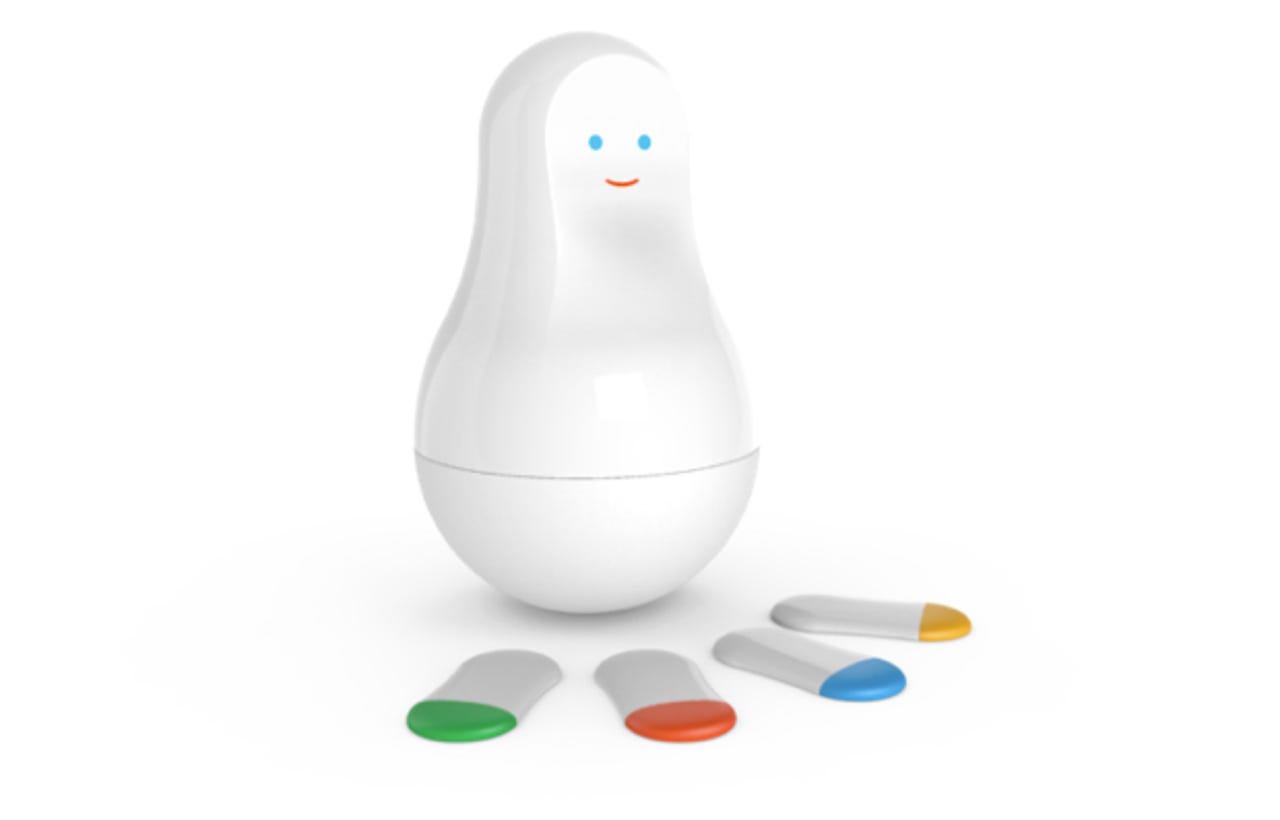When the Internet of Things becomes a nag


Meet "Mother."
Or as I like to call it, the "M2M Mollycoddle."
A new device showcased by Sen.se at the annual Consumer Electronics Show (CES) in Las Vegas has a unique function: to gather data on you (with your permission) to help you learn more and "live better lives," the company described.
Each Mother unit, which looks like part-Russian doll and part-Doctor Who monster, wirelessly communicates to other tracking devices dubbed "cookies," that can sense heat, motion, and other variables. Put down a cookie on a person or any thing and it vacuums up data on how often you walk, how much coffee you drink, when you brush your teeth. There are practically no limits to what it can do.
When the cookies are within proximity of the "mother" base station, it gathers that information up, sends it to the Internet, and can alert your smartphone to life factors that can benefit health and well-being.
For instance, you can track how often your kids are brushing their teeth by placing a cookie on a toothbrush. Or placing a cookie on a bottle of water to see if you're drinking enough water. Or, place it on a prescription packet to check if you've taken your medicine that morning.
Really?
We've evolved — yes, evolved — to a point where we have to give up yet another part of our daily lives to a gadget that assumes responsibilities where frankly, as a parent or a carer — forget that, a human — should probably not divulge to an inanimate object that can theoretically connect to millions of other network-connected inanimate objects.
Don't get me wrong. There are some benefits to M2M, or "machine-to-machine." In fact the benefits are endless. And there's no doubt that Sen.se has encapsulated everything that's workable and functional about M2M in a single product.
Featured
But can we not find some functional uses to this that furthers human kind, rather than maintains it? Why are we being reminded by a device that essentially nags you into drinking more water or brushing your teeth, when we should by virtue of being sentient beings be more than capable of recognizing when one is a little thirsty? If you don't know if your kids have brushed their teeth, ask them. Is it too difficult as a responsible adult and parent to show some damned discipline?
But if you'd rather have this gadget than effectively interact with your own flesh and blood, your priorities are so far out of whack I don't even want to know you.
If we really need M2M in this day and age, set it down on something that might actively solve a problem.
There are children with disabilities, or elderly adults with memory issues. There are endless possibilities for this technology — and similar gadgets that utilize the Internet of Things. It's about balance — delicately dancing this line between borderline laziness and deferred responsibilities, and being useful and beneficial.
Because something has to give. It's all good and well inventing things to solve a problem, but when we borderline on having a device that tells us how often to wipe — well, safe to say Darwin would be spinning in his grave right now.